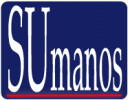From a scientific point of view, the partners shall strive to exchange information and experiences to each other according to the need at different levels in contents, space and time, for example with the purpose: to synchronize scale, both in terms of space as well as in time, in order to make data more comparable; to match hypotheses that are intra- disciplinary in nature but that need to render an interdisciplinary character; and to discuss scientific output in order to anticipate policy questions and support.
From a policy point of view, the partners shall strive to, inter alia, analyze and integrate their research output in the framework of policy relevance and screen policy demands in terms of relevance, coherence, uncertainty and gaps related to the disciplines of the projects in the cluster.
The exchange of information and experiences between the partners of the different projects will be triggered by one yearly formal meeting. These formal meetings should preferable lead to the creation of informal subgroups that might work or discuss around specific sub themes. The meetings will need to be extended by a workshop in 2005, in which the different partners will actively search for tangent planes and gaps and exchange experiences and views with European experts in the same field. The aim should be to stimulate researchers of the different partners to put their work within a broader framework, trying to break with mono-disciplinary thinking and isolation.
There will be one yearly meeting with representatives of the user functions as well. This will be organized in a very structured way. Ideally, this meeting should be consecutive to the formal meeting of the cluster partners, preferable at the same day. The meeting with all users of the cluster projects will guide the direction and discussion within the cluster.
At the end of the cluster period (2006) a two days conference will be organized to present the results of the different projects within the cluster in an integrated way; to compare these research results with research done abroad (with focus on Europe); and to provide a forum for discussion between academia, government representatives, civil servants, industry and non-governmental environmental organisations.


